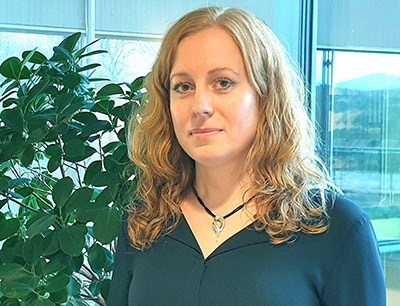Letter from the Dean

Corona, online collaboration and multi- and interdisciplinary
The corona pandemic continues to create challenges for us, now with stricter restrictions in several regions. It feels almost exhausting to start a text with a focus on the ravages of the pandemic. But I do it anyway because I think that everyone at our faculty has done a fantastic job of adapting the working methods so that we can continue to deliver research, education and Environmental Monitoring and Assessment almost as before.
Of course, most things happen via Zoom or Teams (and from the same chair that Göran wrote in his dean's letter earlier this autumn!) where we meet students, participate in seminars and conferences, have meetings, discussions, workshops – all of which that we previously met IRL to do. But our work goes on at the same time as the pandemic is raging. And it shows real commitment and dedication!
I am really looking forward to the day when the restrictions are gone and we can start working as usual again. Imagine being able to have a regular classroom lecture again … or a regular seminar where we are in the same room … or the usual crowding at the microwave ovens at lunch … But I also think we have learned a lot of good techniques that will facilitate the work in the future.
A new way of working has opened up for us
Multidisciplinary and interdisciplinary research could definitely benefit from the fact that we have now learned to work together in electronic environments. A traditional academic environment based on departments where related subjects come together is of course good for the development within then specific disciplines, but can at the same time hinder the development of more multidisciplinary and interdisciplinary research simply because people with different disciplinary backgrounds do not have the opportunity to meet often enough.
Now a new way of working has opened up for us and with the pandemic we have also been forced to learn it properly. Working with those who are not sitting in the room next door will be much easier. This summer, I myself was involved in writing a large interdisciplinary research application where we were did not meet "for real" even once. On the other hand, we had an extremely lively communication at Teams and really rubbed together subjects from both our faculty and the VH faculty, other universities and institutes and across several business actors. A good learning opportunity about how a completely online-based interdisciplinary work environment could work!
Our golden egg
During the year, I participated in the group that worked with the faculty's strategy for the period 2021–2025. Fortunately, we started before the corona misery broke out and had time for visits to our Uppsala-located departments. It was super fun and educational to meet all our different environments in this way. I was already convinced that our faculty, with its breadth, has a very special advantage when it comes to the conditions for developing multidisciplinary and interdisciplinary science, but now I see even more clearly which golden egg we possess. The NJ Faculty Board has also recently decided, subject to the Vice-Chancellor approval, to recruit a professor of political science with the still preliminary focus on community planning, especially biological diversity.
The subject area is of course a bit long and cumbersome and should now be kneaded further, but still! This will further strengthen the breadth of our faculty. It bodes very well for future applications; that we work together across subject boundaries is in demand in, for example, the national research agendas linked to our areas.
But even more important: the challenges society is facing when it comes to the transition to sustainability are so complex that the solution presupposes collaboration across traditional subject and actor boundaries, in research as well as in teaching. Here we have really o a golden egg when it comes to being able to contribute and make a difference. And now we have also really learned to collaborate through online platforms … then physical distances are not so important anymore.
With the wish for a continued fine autumn where we can all stay healthy, even if the autumn is still spent mostly on Zoom and Teams!
Helena Hansson, professor of economics in the agricultural sector, vice dean for multidisciplinary and interdisciplinary sciences
Photo: Mårten Granert-Gärdfeldt.